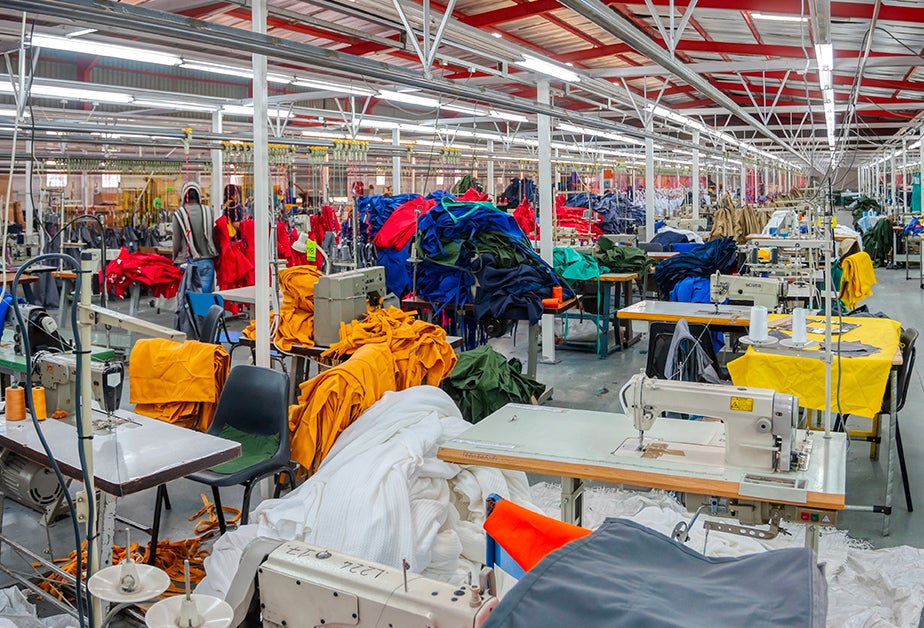On June 21, 2022, the Uyghur Forced Labor Prevention Act (UFLPA) came into effect, rolling out stringent anti-slavery and supply chain due diligence requirements. Manufacturers must now look deep into their supply chains to ensure they comply with this new piece of legislation that seeks to protect human rights within the supply chain.
Building a sustainable supply chain that is resilient and supports your environmental, social, and governance (ESG) goals requires a deep understanding of the connection between your suppliers’ human rights impacts and your ability to operate in compliance with international trade regulations.
Trade compliance regulations ensure that products entering markets and crossing borders respect environmental, health and safety, and human rights laws. Manufacturers are better equipped to conduct trade in compliance with these laws when they ensure that their supply chain partners incorporate ESG best practices into their own operating and sourcing practices.
Where Trade Meets Sustainability: Forced Labor in the Spotlight
The UFLPA is a perfect example of how ESG considerations and trade compliance intersect. The UFLPA bans the import of goods and articles made in whole or in part in the Xinjiang Uyghur Autonomous Region (XUAR) of China, under a rebuttable presumption of forced labor. This ban also extends to articles made by similarly persecuted groups in other parts of China, as well as products made in other countries but containing parts from the XUAR.
In other words, the UFLPA functions as both a trade regulation and an ESG due diligence requirement, focused on eradicating the use of forced and compulsory labor in products entering the U.S.
Let’s take a look at how UFLPA links trade compliance and supply chain sustainability:
- The UFLPA uses supply chain data — country of origin and region of origin — to protect the rights of persecuted minorities.
- Non-compliance with UFLPA could impact Customs Trade Partnership Against Terrorism (CTPAT) membership. According to the U.S. Customs and Border Protection (CBP), members that bring in goods subject to the UFLPA may be suspended or removed from the CTPAT program.
- While it can be viewed as primarily a trade compliance regulation, information collected for UFLPA compliance overlaps with the information required to report on social issues as part of an ESG program, and aligns with reporting requirements of international standards like the Global Reporting Initiative (GRI) and Sustainability Accounting Standards Board (SASB).
- Like supply chain due diligence requirements coming out of the EU, businesses are required to undertake heightened due diligence by reviewing supplier practices to ensure human rights violations are not occurring in their supply chains.
Non-compliance with the UFLPA could result in significant negative consequences for you as a manufacturer, including shipment detention and seizure, resulting in loss of access to the U.S. market. In the event that you discover that one or more of your suppliers are using materials from the XUAR, you may need to re-engineer your product(s) to eliminate the XUAR-sourced material, or seek a new supplier in order to ensure UFLPA compliance. This could result in business disruption. Protecting your business continuity, therefore, requires defensible data that not only proves the origin of your materials, but also that your supply chain is not in any way linked to XUAR forced labor.
So, how do you get that data? Let’s talk about best practices …
Human Rights & Trade Compliance Best Practices
In order to comply with the UFLPA requirements for trade compliance, manufacturers need deep visibility into their supply chains, as well as the ability to generate actionable data on any forced labor risks that may exist in their supply chains. If you source anything from China, you’ll need to know from which region your articles originate, as well as who is involved in their production or manufacture. To collect this type of data, companies rely on industry-standard tools such as the Slavery and Trafficking Reporting Template (STRT).
The STRT supports forced labor due diligence and downstream traceability for goods by collecting comprehensive and verifiable data on sourcing and due diligence practices along the entire supply chain, from raw material to finished goods. Its commodity-specific traceability approach enables companies to scrutinize their supply chain for specific commodities by collecting information on sourcing practices from tier one to lower levels of the supply chain where the risks of forced labor are often the highest.
Due diligence best practices also require companies to reduce supplier survey fatigue by minimizing the number of surveys suppliers are required to complete and the number of systems they are asked to interact with. By using one delivery system for all your supplier engagement — from product compliance to ESG — you improve your supplier response rate and depth of engagement, as well as the quality of your supply chain sustainability program.
Seeing deeper into your supply chain, down to parts of parts and even the origins of those parts and who handles them, is essential for a resilient and sustainable supply chain. Assent’s supply chain sustainability management solution helps manufacturers grow better by helping them collect trade compliance, product compliance, and supplier ESG data, and combines it all with expert regulatory support.
Learn more about human rights due diligence, including UFLPA and the Supply Chain Due Diligence Act from Assent experts. Watch the on-demand webinar: From SCDDA to ESG: Growing Your Program. Watch now!









